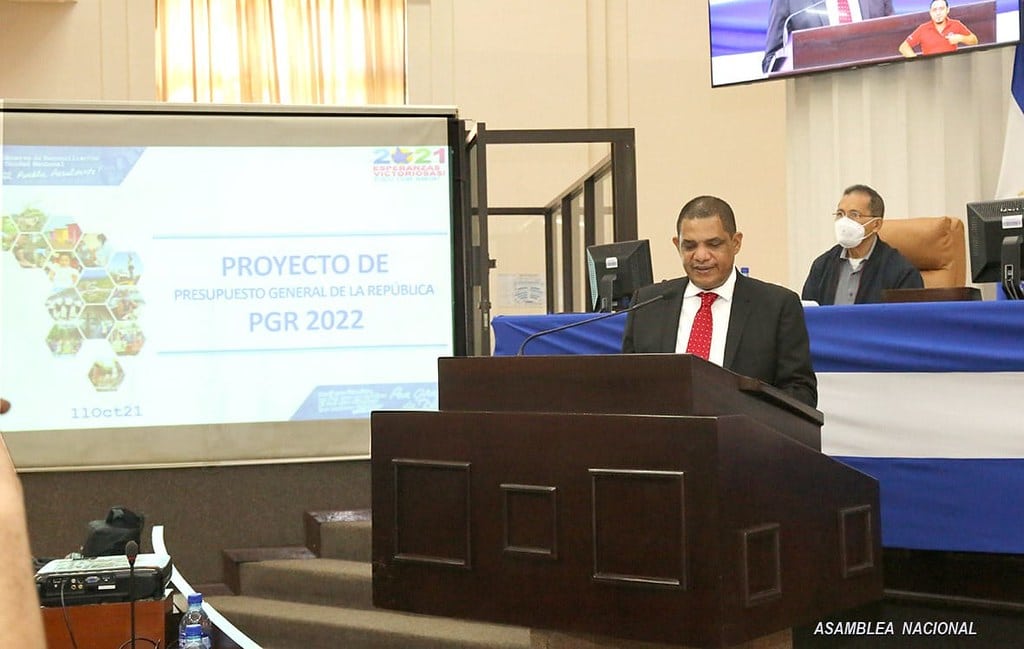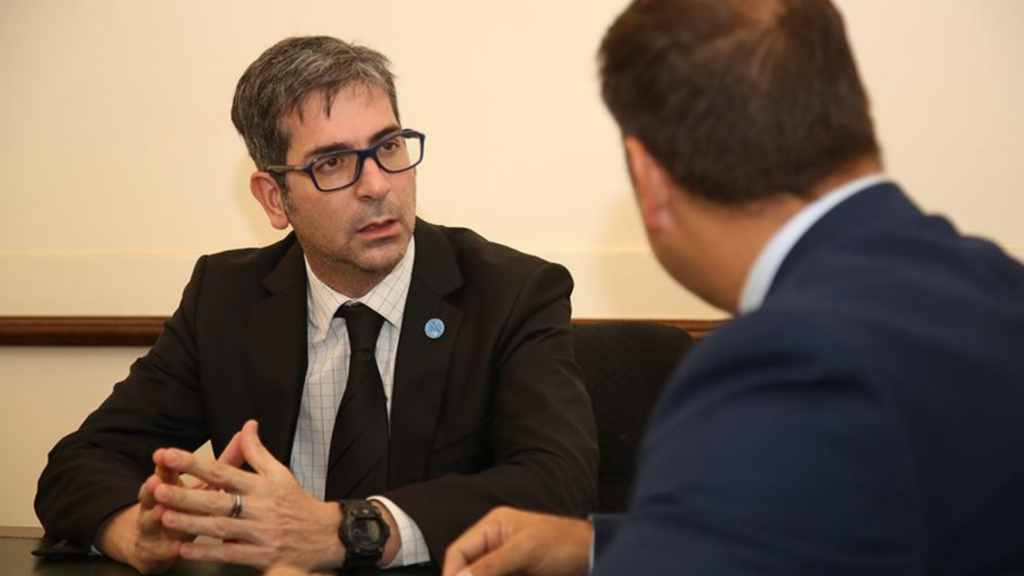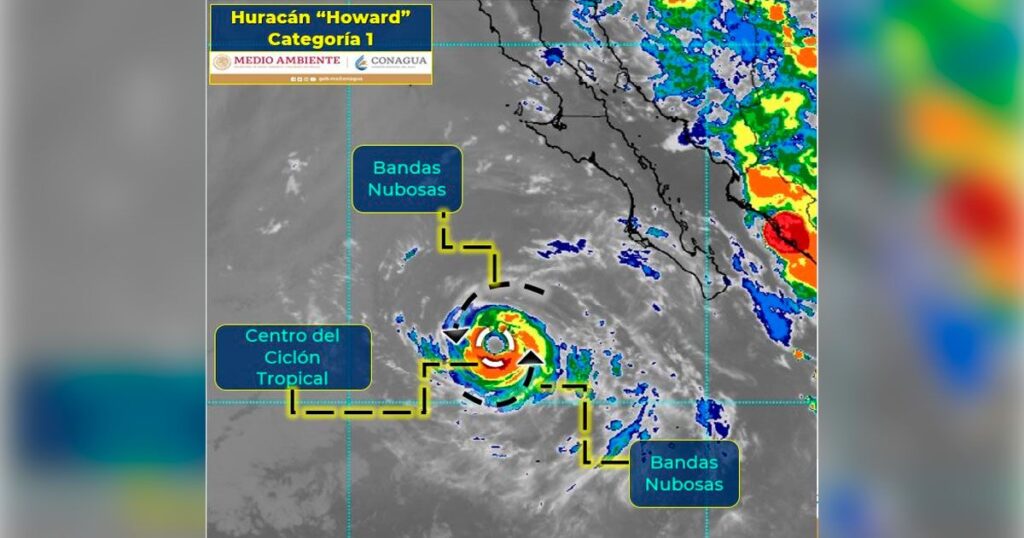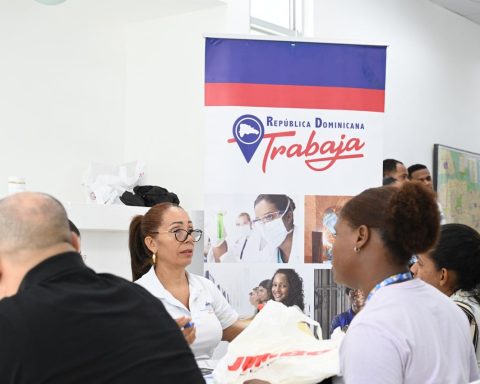At the end of January 2019, the Minister of Finance and Public Credit, Iván Acosta, declared that the tax reform that the Daniel Ortega regime wanted to approve had the mission of raise $300 millionwhich was an indication of the gap in public finances, after the socioeconomic crisis caused by the violent Ortega response to the citizen protests of April 2018, hit tax collection.
According to official data published by the Ministry of Finance, in the 15 months between January 2021 and March 2022, the Government raised some 720 million dollars more than a year earlier, which could be considered a ‘success’ of the administration… if it weren’t for the fact that their counterparts (the companies that pay these taxes) are on the verge of economic suffocation, and the time will come when they cannot pay more.
An example of this climate of economic suffocation is the message received by the manager of a large commercial company that operates in Nicaragua, when he was instructed by his headquarters to limit himself to generating enough income to keep the office open, trying to fire as few employees as possible. The company, in fact, is still open, but to survive it had to close all its branches and send home 40% of the payroll.
The story of this administrator, whom we identify as a ‘commercial manager’, does not differ much from that told by the manager of an industrial company, who has seen how the high tax burden reduces the company’s profits, to the point that he feels that “ we are working for the government.”
“That law (the tax reform of March 2019) was approved like this – without consulting anyone – because its goal was always collection. Objections were presented to them, but they only listened to a group of their unconditional supporters, besides we never knew in advance what this law would bring. That reform was imposed,” he asserted.
“The pure and hard reason to order this reform at that time was to collect,” says the commercial manager, recalling that “public finances were hit by the drop in collection, at a time when they could no longer get more money with Venezuela, so they took it from the Nicaraguan companies, which could no longer negotiate, but it was also a form of revenge,” he theorized.
‘flat right’
Until before the National Assembly voted to approve the tax reform sent by Daniel Ortega, the Nicaraguan tax system “was more rational,” says the industrial manager, referring to the fact that companies had to inform the General Directorate of Revenue (DGI), 1% as advance payment of income tax (IR), and another 1% on sales to municipalities.
The reform of March 2019 substantially changed the rules of the tax game, because it ordered a definitive minimum payment (PMD) of 3% for the DGI (in the case of large companies), while the payment to mayors became of 2%, “which is suffocating for the formal company”, reiterated the industrial manager.
The manager of a company that is also the leader of his union explained that this 3% has to be paid in the first five days of the following month. “If you invoiced 500,000 córdobas in January, you have to pay 15,000 córdobas in the first five days of February, but many times customers ask you for 30, 45 or 60 days of credit, which means that they will pay you at some point. of the month of March.
Meanwhile, he had to pay the tax with the money he received after collecting the sales made in December, without forgetting that he also had to pay the payroll, electricity, suppliers.
“That 3% is a terrible blow, which destabilizes us financially, and if one does not pay it within the five days required by law, they impose fines, and they do not give you access to the system, so you cannot invoice to sell in the current month,” he added.
The result of that accelerated extraction of your resourcesis that companies were left with less availability of cash flowexplained to CONFIDENTIAL the manager of an importing company. The problem is that the damage did not come only in the form of having to allocate more money from profits to pay more taxes, but also in finding ways to circumvent the effects of the decisions that other companies were making.
“Since 2018, as a precautionary measure, banks reduced and even eliminated credit lines, of which many of us leveraged, while providers reduced credit lines and terms. That got worse with the pandemic, between 2020 and 2021, so the companies had to sell in cash to be able to pay this tax, and that leaves us short of reinvesting in our businesses,” added the import manager.
The element that aggravates this new tax reality is that it is a ‘cascade tax’, which puts formal companies at a huge disadvantage compared to informal ones, which do not have to pay this tax, reflects the industrial manager, although his colleague, the commercial manager, points out that among formal companies, this tax affects smaller ones more, which are struggling to get ahead.
His reasoning is based on the fact that “it may well happen that a company makes a profit of 25,000 dollars, and has to pay 100,000 in taxes, which means that this Government found a way to confiscate the profits, without confiscating the companies. It is as if they told us ‘you work for me, instead of working for your own interests’. We are paying a ‘floor fee’ (like the one charged by the gangs) to be in Nicaragua,” he explained.
perverse incentive
The imposition of a PMD of up to 3% per month has the perverse effect of encouraging the import of raw materials, and even of finished products, by making it cheaper to buy abroad than to buy -and transform- in the country.
The tax burden -and cascading- is so onerous for companies that give added value to national raw materials, (developing the process of industrial transformation in the country), that the result of this equation is detrimental to the national industrial sector. , while favoring the importer, explained the industrial manager.
For example, a coffee-producing company, when buying from a local supplier, must make a 3% withholding for the DGI, and another 2% for the mayor’s office, on top of the sale price. When the time comes to sell that processed coffee, this industrialist must pay another 3% and another 2% on his income, which also taxes the 3% and 2% that he charged the supplier before, but if that supplier sourced from a private producer, he also had to retain those same percentages, he explained.
If instead you decide to import the grain, you can buy it duty-free, if it comes from Central America, or pay an import duty, if it comes from another, and you only have to pay that 2% and that 3%. “That encourages imports, in addition to putting us in a disadvantageous position compared to informal companies, and compared to importers,” he added.
“The 3% payment was which forced Cersa to close”, said the union leader, recalling that the company imported grain oats from Chile, to transform it in Nicaragua and export it to Central America, but closed, due to high operating costs (energy, payment of 5% in concept of selective consumption tax on imported raw materials), leaving around 150 people unemployed.
Now, there is a trading company that imports the finished product from Guatemala, so it no longer pays that 3%, passing the responsibility of paying taxes to the company that sells it to the final consumer (such as a supermarket).
Collection cannot grow indefinitely
“All of us who were affected by the PMD, had to find a way to transfer it to the cost structure, because it is impossible for us to assume them as a company or organization,” said the importer.
For this reason, “the State cannot expect to collect the planned amounts, since it must remember that the lower the volume of sales, the lower the collection,” he added.
Indeed, the projection of what should be the general budget of the republic for 2021, showed a very poor performance of the tax reformbeing that the income and expense budgets for that year were barely 0.4% and 0.77% higher than those of 2020, which were lower than those of the previous year, when including the increase in inflation in the equation.
However, 2021 showed record taxation levels, the same as the first quarter of 2022. “The overtaxation is a consequence of the ‘arrangements’ to which the DGI and the DGA force you”said the import manager, recalling that in order to meet the goal of “collecting at all costs, they impose audits where we all get stuck. Yes or yes”, he added.
Remember that the basic strategy, at least in the DGI and in the mayor’s offices, (especially Managua), is that “they fine you a certain amount, and offer you an ‘exit’, paying a lower percentage.”
All in all, no one can be reasonably convinced that the situation will continue like this indefinitely, because any formal company (whether it sells cars, mass consumption products, or prepaid cards), went from giving 1% to the DGI, to a 3% that “is confiscatory, because we have been in crisis for years, but still, we have to pay the Government, which means that we are losing money,” explained the commercial manager.
Back to 2019
Looking to the future, and even knowing that the private sector organized in the Superior Council of Private Enterprise (Cosep), lost the ‘right of latch’ which it enjoyed for several years, the commercial manager says to a question from CONFIDENTIAL that, if they had a chance to make someone within the Ortega administration listen to them, they would suggest “going back to where we were before the reform.”
“That would allow us to have more oxygen to operate, especially the smaller companies, the entrepreneur who perhaps has ten employees and is struggling to get ahead, but with these laws, Nicaragua is becoming an increasingly oligarchic and oligopolistic market. ”, he abounded.
The industrialist also advocated “returning to 1%, so that they stop taking away our competitiveness”, while considering “it is a mistake that this is generalized for all sectors, because there are some -such as appliances, fine clothing, hotels and restaurants- that have profit margins of 30%, 50% and more, while others such as mass consumption foods, have margins of 15% and at most 20%”.
“The increase in taxation led many industrial and commercial companies to pay 3% instead of 1%, which hit their operating flow. We need them to return us to the 1% so that they let us breathe. Otherwise, what awaits us is the decline in the medium term: many companies are going to collapse, or are going to look for ways to avoid paying taxes. In any case, there is an imminent risk of collapse”, insisted the union leader.


















